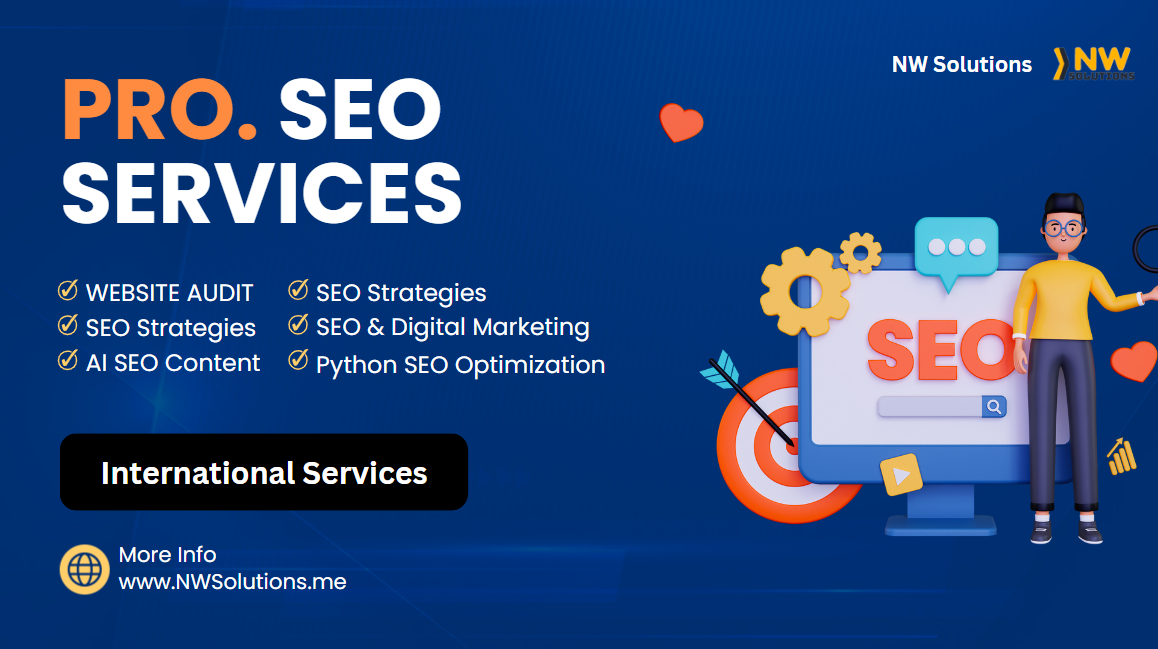If you own a website, you are probably aware of the importance of search engine optimization (SEO) in driving traffic to your site. SEO is a complex process that involves several factors, including website design, content, and link building. In this article, we will walk you through the steps we take to rank our website, and how you can implement these strategies on your own site.
- Keyword Research The first step in any SEO strategy is keyword research. Keywords are the words and phrases that users type into search engines to find information. By identifying the keywords relevant to your business, you can optimize your content to appear higher in search results. There are several tools available to help you find the best keywords for your website, including Google Keyword Planner and SEMrush.
- On-Page Optimization On-page optimization refers to the changes you make to your website to improve its visibility in search results. This includes optimizing your website’s title tags, meta descriptions, header tags, and content. Title tags and meta descriptions are HTML elements that appear in search results and give users a brief overview of what your page is about. Header tags are used to break up content and make it more readable. Content optimization involves ensuring that your website’s content is relevant, informative, and engaging for your target audience.
- Off-Page Optimization Off-page optimization involves strategies to improve your website’s visibility and authority outside of your website. This includes link building, social media marketing, and influencer outreach. Link building involves getting other websites to link back to your website, which can improve your website’s authority and search rankings. Social media marketing involves promoting your website on social media platforms like Facebook, Twitter, and Instagram. Influencer outreach involves working with influencers in your industry to promote your website and content.
- Technical SEO Technical SEO refers to the technical elements of your website that can impact its search engine rankings. This includes website speed, mobile-friendliness, and website security. Website speed is important because slow-loading pages can lead to a poor user experience and lower search rankings. Mobile-friendliness is important because more than half of all internet traffic comes from mobile devices. Website security is important because Google favors secure websites (those with HTTPS) in search rankings.
- Content Marketing Content marketing involves creating and sharing valuable content to attract and engage your target audience. This includes blog posts, infographics, videos, and podcasts. By creating high-quality content that is relevant to your audience, you can attract more visitors to your website and improve your search rankings. Additionally, content marketing can help establish your brand as an authority in your industry and drive conversions.
- Analytics and Reporting Analytics and reporting are essential to any SEO strategy. By monitoring your website’s traffic and search rankings, you can identify areas for improvement and adjust your strategy accordingly. Google Analytics is a free tool that provides detailed insights into your website’s traffic, including the number of visitors, the pages they visit, and the actions they take on your site.
Conclusion
Ranking a website in search engine results is a complex process that involves several factors. By following the steps outlined in this article, you can improve your website’s visibility, attract more visitors, and drive conversions. Remember that SEO is an ongoing process, and you will need to monitor your website’s performance and adjust your strategy as needed to stay ahead of the competition.
